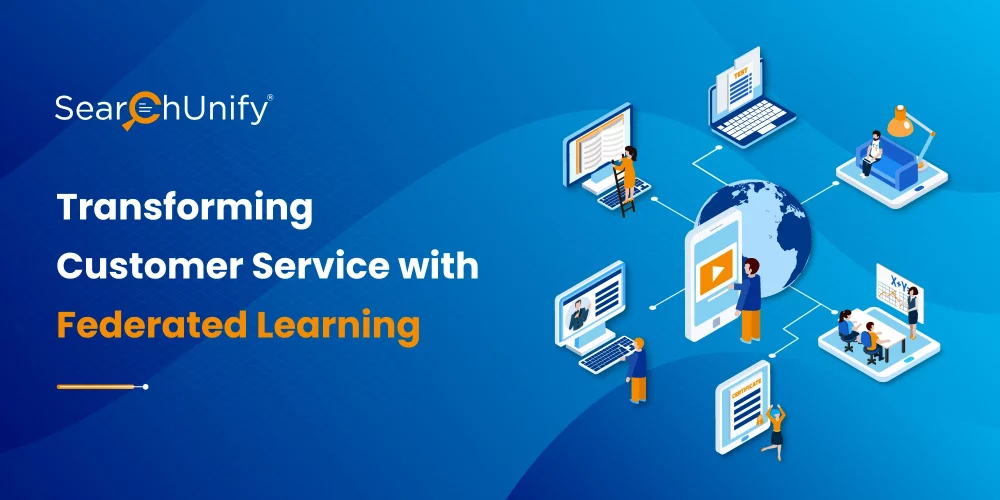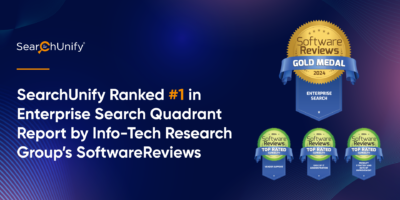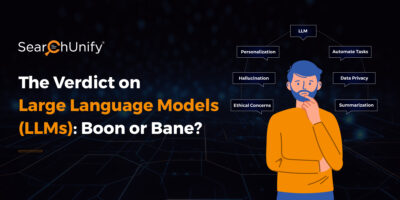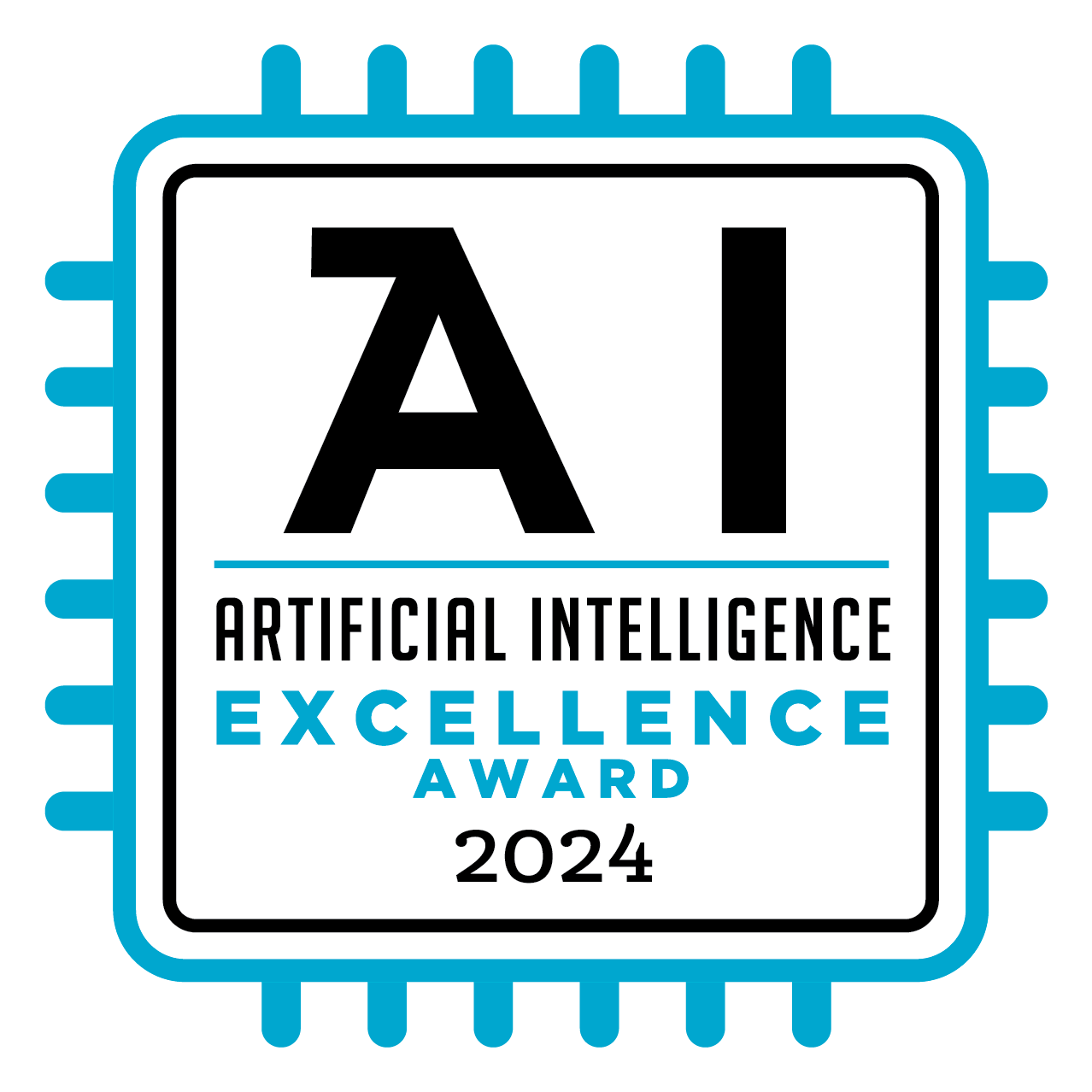
Customer service, the beating heart of every business, is in the midst of a dynamic transformation powered by cutting-edge technologies. Amid this digital revolution, a captivating innovation has been reshaping the very essence of customer interactions—Federated Learning.
Imagine a world where customer experiences are not just tailored but also safeguarded by an ingenious approach that respects data privacy. This is the realm of Federated Learning, a revolutionary machine learning paradigm that is igniting a new frontier in customer service. But what exactly is Federated Learning? Let’s find out!
Understanding Federated Learning
Federated Learning is a decentralized machine learning technique that allows models to be trained across multiple devices or servers while keeping data localized. In essence, it brings the model to the data instead of bringing data to the model. This setup ensures data privacy and security, making it an ideal choice for industries dealing with sensitive customer information.
How Does Federated Learning Work?
The process of Federated Learning is orchestrated through a series of steps, each contributing to the refinement of a global model while safeguarding the privacy of individual data sources. They are:
- Initialization: A global model is created and distributed to participating devices or servers. This model serves as the starting point for the learning process.
- Local Training: Each device or server trains the model on its local data without sharing the data itself. This is a key feature that ensures data privacy remains intact.
- Model Aggregation: Updated models from different devices are aggregated to improve the global model. However, this aggregation involves only the model parameters, not the raw data.
- Iterative Process: The process of local training and model aggregation is repeated iteratively, refining the global model over time. This iterative approach allows the model to improve gradually without centralizing data.
Advantages in Customer Service
- Privacy and Security: In an era where data breaches and privacy concerns are frequent headlines, Federated Learning offers a novel solution. By allowing data to remain on individual devices, customer data remains secure. This is particularly important in industries like customer support, healthcare, finance, and e-commerce, where personal and financial data are at stake.
- Personalization: Customer service excellence often hinges on the ability to provide personalized experiences. Federated Learning facilitates this by training models on data from various sources. For instance, chatbots can better understand individual customer preferences and offer tailored solutions based on a broader spectrum of insights.
- Reduced Latency: Customer service is all about timely responses and interactions. The localized nature of Federated Learning reduces the need to transmit large volumes of data to a central server. As a result, there is a decrease in latency, allowing real-time interactions between customers and support agents, thereby enhancing the overall customer experience.
- Efficient Resource Utilization: Federated Learning isn’t just about enhancing privacy; it’s also about resource optimization. Instead of relying solely on a centralized data center, Federated Learning leverages the computational power of distributed devices. This approach results in more efficient resource utilization and reduced strain on data centers, contributing to cost savings.
- Improved Scalability: Customer support involves a large volume of interactions. Federated Learning allows organizations to train models across distributed servers or devices, making it easier to scale up and handle increasing volumes of customer data and requests.
- Energy Efficiency: Training large machine learning models requires substantial computational resources. Federated Learning distributes the training process across multiple devices, potentially reducing the overall energy consumption and carbon footprint associated with model training, while contributing to a more sustainable customer service ecosystem.
-
Chatbots and Virtual Assistants
Federated Learning has the potential to revolutionize the capabilities of chatbots and virtual assistants. These AI-driven tools can become more effective by incorporating insights from various devices. The result? Chatbots that are better equipped to understand and respond to customer queries, leading to improved customer satisfaction. -
Fraud Detection
In the finance industry, where fraud detection is a critical concern, Federated Learning can make a significant impact. Financial institutions can collaborate securely using this approach to develop fraud detection models. By training on transaction data from various branches without compromising sensitive financial information, these institutions can stay ahead in the battle against financial fraud. -
Healthcare Diagnostics
In the realm of healthcare, Federated Learning has profound implications for diagnostics. Medical institutions can collaborate while maintaining data privacy to develop diagnostic models. By leveraging patient data from multiple sources, healthcare providers can contribute to improved patient care and better diagnostic accuracy.
Real-World Applications
Navigating the Challenges: Federated Learning in Customer Service
While Federated Learning brings promising advancements to customer service, it’s important to acknowledge and address the challenges that come with this transformative approach:
-
Communication Overhead
In the realm of customer service, collaboration between devices and servers takes center stage. However, orchestrating this collaboration can introduce a communication overhead. Coordinating the training process across diverse platforms requires finesse, as communication delays might impact the efficiency of the learning process. Overcoming this challenge demands the implementation of intelligent algorithms and streamlined protocols for communication, ensuring that the journey from data to insights remains smooth and efficient. -
Heterogeneous Data
Customer data, much like the customers themselves, is diverse. It’s collected from various sources and channels, each with its own unique characteristics. This diversity can pose a challenge in Federated Learning, as the data may exhibit different distributions. In the context of customer service, where consistency is key, handling this data heterogeneity becomes pivotal. Adapting the global model to accommodate varying data profiles is essential to ensure unbiased and accurate results across all contributing sources. -
Addressing Model Drift
In a landscape where customer preferences and behaviors evolve over time, it’s vital to maintain a consistent approach. Local models, as they evolve independently, can drift away from the global model. For customer service to remain effective, this model drift must be managed. Synchronizing and aggregating local models to ensure consistency is paramount. Strategies for model aggregation and synchronization must be employed to prevent divergence and ensure that the insights drawn from the global model resonate across all contributing devices, delivering a unified and reliable customer service experience.
Conclusion
Federated Learning represents a groundbreaking advancement in the field of customer service. Its ability to provide personalized experiences, maintain data privacy, and operate efficiently makes it an enticing solution for modern businesses. As the technology continues to mature, we can expect it to play a pivotal role in shaping the future of customer service.
By ensuring both customer satisfaction and data security are at the forefront of business operations, federated learning paves the way for a new era of customer-centric service excellence.
In a world where personalization and privacy are paramount, Federated Learning stands as a bridge between these seemingly conflicting priorities, offering a win-win solution for businesses and their customers alike.
Therefore, for those in search of a comprehensive platform that seamlessly integrates the benefits of personalization and privacy, there is no need to look any further. We invite you to experience the potential of Federated Learning firsthand by requesting a demo. Embrace the future with a single, forward-thinking solution.



















